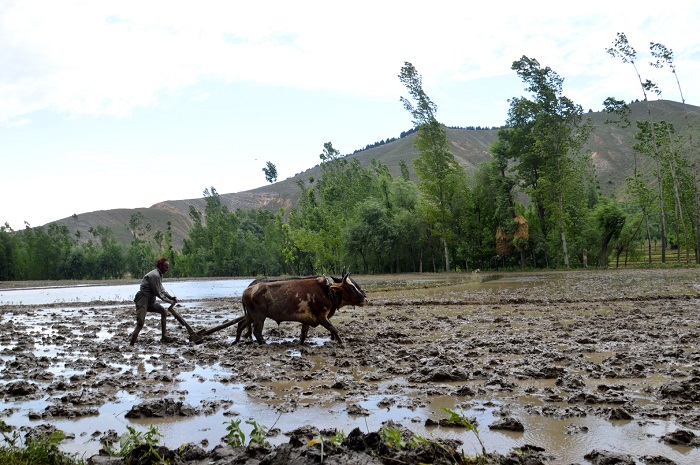The PM-Kisan Samman Nidhi (PM-KISAN) scheme has been launched with much fanfare and even more rhetoric for accompaniment from Gorakhpur. But fact remains that the majority of states in the country are yet to provide their lists of beneficiaries for the scheme because land records in these states are far from being computerised, and data remains to be collected, verified and ‘purified’. According to one report, details of only 2.4 crore out of the expected 10 crore beneficiaries had been uploaded on to the Centre’s database as of February 21. And these beneficiaries have been listed chiefly by Gujarat, Maharashtra, Tamil Nadu and Uttar Pradesh. For a country that has been run on age-old systems of records-keeping, with bureaucracy spending its energy and time chiefly on maintaining the status quo and getting muddled by frequently changing its directions rather than going in for necessary reforms, land records remain physical documents that need to be verified manually and data generated when need arises. This whole rigmarole is bound to take years for the officials to accomplish delivery to perfection in the current situation. It has to be admitted that in most states, even those claiming improvement in many of their social metrics, land records are far from getting computerised. States such as Bihar, which is home to a number of smallholder and landless and tenant farmers, land records maintenance is said to be very poor. It is another matter altogether that the real sufferers of agrarian crisis are the small land holders and landless farmers. Those farmers with the necessary means to meet the costs of agriculture are well able to also find means to get their produce to the market and then sell for the right price and survive the vagaries of weather. Small holders and landless farmers, in turn, are being deprived of their meagre livelihood because they are not equipped to keep pace with changes. They are producing food by traditional techniques and often using new inputs without necessary understanding of their application. There is a distinct shift in rural livelihood with many agricultural labourers without land holdings moving to urban centers for work such as construction under hazardous conditions. The quality of life that people going for such work have today may have improved materially, but health is suffering. Lifestyle diseases are on the rise among these strata as their biggest assets, their bodies, are getting ignored. They are today directly exposed to poisons of different kinds and becoming guinea pigs, mostly inadvertently. Agricultural land is being encroached upon silently by upwardly mobile classes that need land to build homes. People with huge agricultural land holdings are keeping their land fallow for years citing inability to invest in agriculture owing to absence of irrigation and other such essentials. They are also able to get the land use pattern changed so that it becomes part of real estate market that can fetch huge returns, although it may be just one-time. The government has taken one step towards providing farmers with support, more like a straw to cling on to. Successive governments now have to see to it that reforms are introduced to protect the farmers and make farming a lucrative occupation. So much so that it may be able to not only stop outward migration but rather attract people back into rural India and return to farming. Governments further have to ensure that the granaries of the nation are not filled solely with what is imported but rather with what men and women grow with the sweat of their brow and power of their toil. To keep such a populous country fed and to avoid food riots, attention must be paid to the farmer and his/her needs, not just a paltry few thousands thrown as solace before elections.
Long way to go

Farmer tills his land. (Photo: IANS)
- Categories: Edit
- Tags: editorialLong way to goORISSA POSTPM-KISAN
Related Content
Carving The Globe
By
Post News Network
January 14, 2026
Political Rot
By
Post News Network
January 13, 2026
Dhurandhar to Present
By
Post News Network
January 12, 2026
Self-Sabotage
By
Post News Network
January 11, 2026
Policy Paralysis
By
Post News Network
January 10, 2026
New Axis Powers
By
Post News Network
January 7, 2026